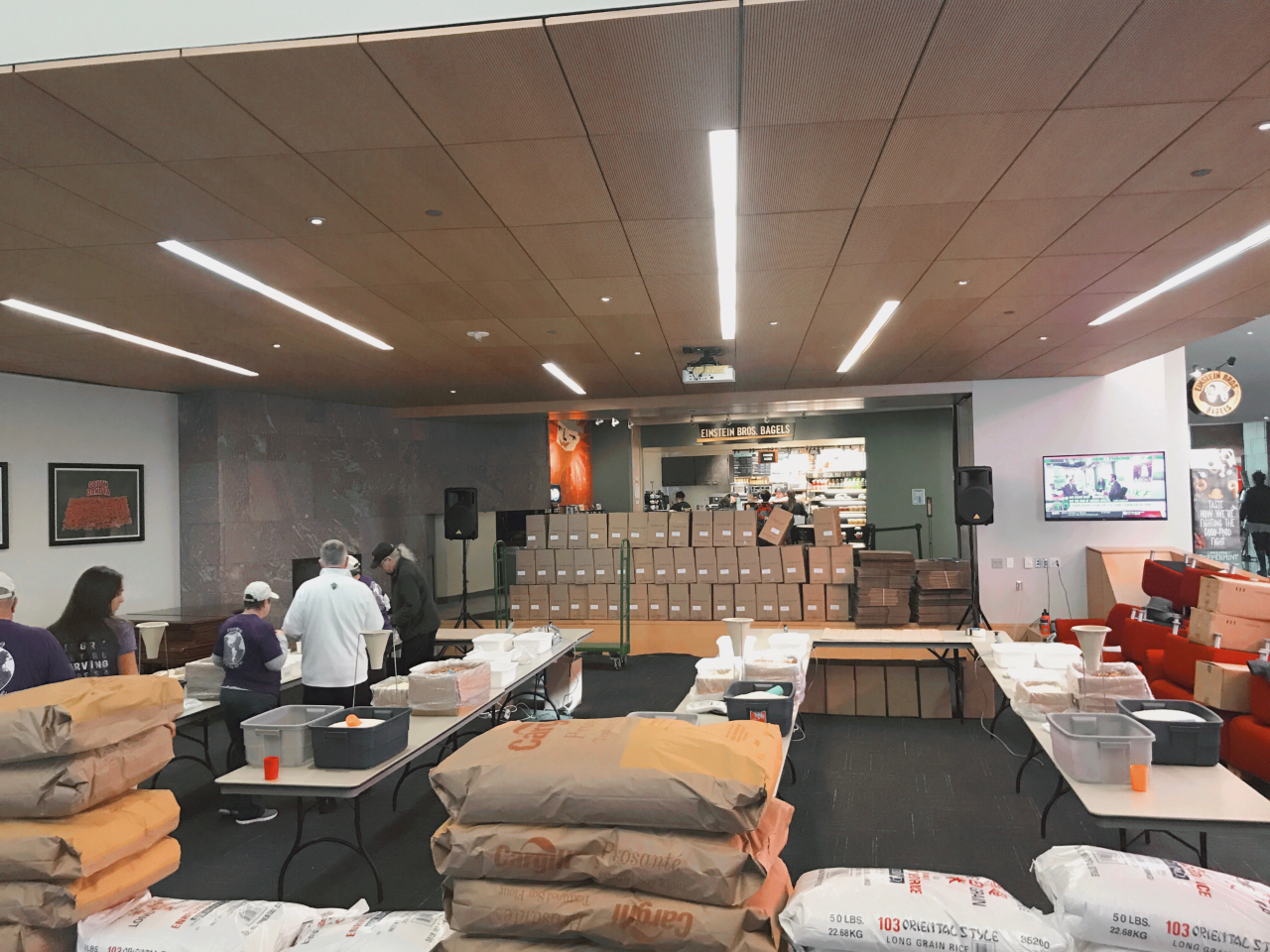
Then Feed Just One to package meals addressed to Honduras
USD’s chapter of Then Feed Just One’s food drive is aiding the people in Honduras by preparing nonperishable meals for distribution.
Then Feed Just One, a non-profit based out of Le Mars, Iowa, is holding
Students will aid in preparing and packaging meals of rice, soy, freeze-dried vegetables
According to the Borgen Project, Honduras is the second-poorest country in Latin America and one of the poorest in the world as 1-in-5 Hondurans are living below the poverty line.
Jenna Corrin, Co-President of Then Feed Just One (TFJO), said that former USD alumnus helped pave the start of the organization.
“The organization originally started in 2016 by two students who had been apart of the TFJO branch in Le Mars,” Corrin said. “After participating in packaging events throughout high school and delivering meals to Honduras, they wanted to expand TFJO’s reach at USD.”
TFJO’s mission is to educate others about the impact of poverty, Corrin said. TFJO has partnered with other non-profits, such as the Vermillion Food Pantry.
Corrin said a canned food drive was set-up during service day for President Gestring’s Inauguration last year.
“TJFO members hosted and volunteered at the MUC Pit. We collected over 2,000 items,” Corrin said. “The university donated one semester of free books that were raffled off at the end of the day to one student who had donated to the canned book drive.”
Additionally, Corrin said, the organization wants to establish relations with Habitat for Humanity, but the uncooperative weather has made it a challenge to
“This is part of our community outreach by working with other organizations that share our similar goal and mission,” Corrin said. “Anyone can come to the event to be involved and it no longer costs students a fee to package.”
Cameron Miller, secretary for Then Feed Just One, said the group has continued to
“We packaged over 15,000 meals in 2018 and our new goal for this year is 20,000,” Miller said.
The process of preparing meals is a multiple-step endeavor. Corrin said that the supplies needed for the event (food, equipment, boxes) are brought by TFJO to host the packaging event.
“It is a combination of preparing the bag, opening it, and then combining all of the ingredients of the meal,” Miller said. “As the assembly line process moves forward, everything gets added in and the bag gets sealed. Then, the food moves into a box to be sealed and shipped.”
There are additional measures in place in case there is an overabundance of students that want to volunteer.
“We will space out how many meals are packaged per hour. But, if students are moving extra fast, we might cut down the time to 15 minutes and start rotations so that everyone can be active in the process,” Miller said.
The impact of packaging the meals goes beyond the surface. Corrin said by volunteering for even thirty minutes can make an impact.
“It’s not just a volunteer thing at the end of the day, it is a matter of life and death,” Corrin said. “These meals are going to real people in Honduras. “


